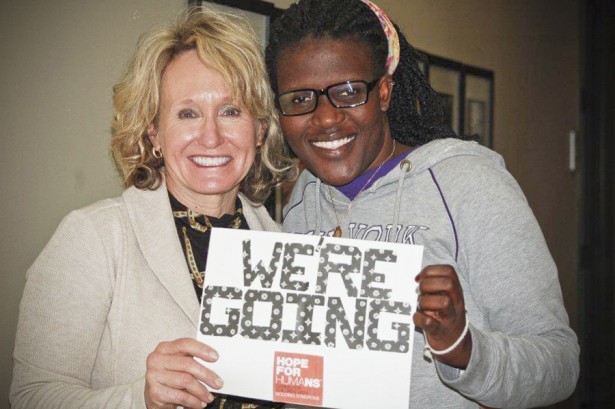
Collines, a university student in the Legacy Scholarship Program and the Director of Operations for Hope for Humans in Uganda is well aware of the power that advocacy has to change hearts and expand minds. She was an Invisible Children Roadie for the Frontline and Congo tours in 2011, and while she inspired many with her stories of personal experiences from northern Uganda, she also found herself inspired to take action.
“One thing that I learned and I think inspires me every day is the power of activism – taking action on an individual level – not just seeing a situation and saying ‘wow, God, that is hard,’” Collines explains. “But knowing that whoever we are, we all have something to give to make a change.”
She’s been living that conviction, pursuing development studies at Gulu University while simultaneously working for Hope for Humans, serving children in northern Uganda who are suffering from Nodding Syndrome.
Collines will be attending the MOVE event with Suzanne Gazda, MD, co-founder of Hope for Humans. Suzanne is a neurologist from Texas who has published works on a wide range of neurological diseases and disorders, and recently attended the first International Scientific Conference on Nodding Syndrome in Kampala, Uganda.
Collines, tell us why you and Suzanne are going to MOVE: DC?
We are going to MOVE:DC because we know and we have seen the atrocities that the LRA have committed and there is no greater horror knowing that the same war is still going on and that the people in Congo, South Sudan and Central African Republic are still going through the same things that the people in northern Ugandan went through for over 20 years. Suzanne has studied the war and she and I know that this war is not about to end unless people all over join forces and MOVE stronger than ever before. That’s why we are going to be part of the great DC movement.
Think people should hear about this?